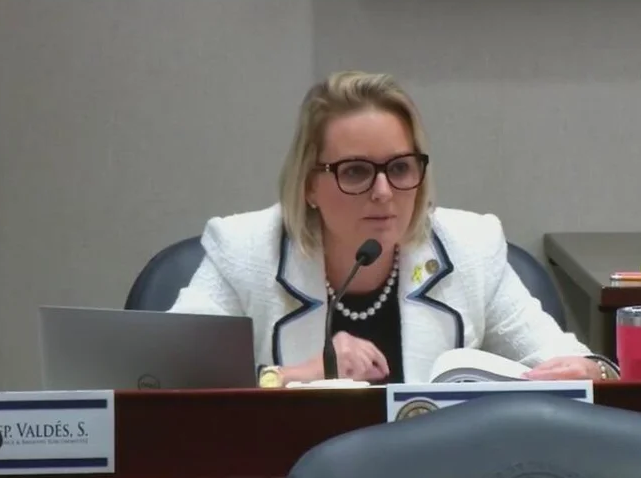Investigative reporter Lawrence Mower deserves some type of award and thanks. His work has unveiled a deeply concerning pattern within Florida’s insurance industry, noted in the story: Secret Study Found Florida Insurers Sent Billions to Affiliates While Crying Poor. While insurers have publicly lamented their financial hardships, Mower’s findings reveal that these companies have been diverting substantial funds to affiliated entities and investors, all while justifying premium hikes and influencing legislation that disadvantages policyholders.
The confidential report commissioned by the Florida Office of Insurance Regulation (FLOIR) titled “Affiliated Fee Analysis Executive Summary” sheds light on these practices. The report indicates that executives from numerous Florida-based insurers extracted significant sums from their companies, often in violation of state regulations. This financial maneuvering left many insurers in a weakened state, potentially jeopardizing their ability to fulfill claims during the state’s escalating insurance crisis. Alarmingly, this report was never shared with state lawmakers, raising questions about the transparency and accountability of regulatory bodies. The report puts meat around my post from two years ago, How Florida Insurance Executives Siphon Off Millions and Leave Their Companies Bankrupt.
Under the questionable leadership of former Insurance Commissioner David Altmaier, the FLOIR appeared to prioritize legal reforms that curtailed policyholders’ rights, ostensibly to address the industry’s financial woes. However, the revelations of undisclosed profits being funneled to affiliates cast serious doubt on the legitimacy of the industry’s claims of financial distress. A coordinated narrative of financial instability was likely employed to manipulate legislative outcomes, resulting in laws that disproportionately favor insurers at the expense of policyholders.
Why didn’t then Insurance Commissioner Altmaier raise these issues? Why didn’t he explain that this was going on while testifying before Florida lawmakers and making quotes to the press blaming the insurance crisis on lawyers and restoration contractors? Could it be that Altmaier is part of the “revolving door” of insurance regulators moving on to quietly promised future employment with those regulated insurance companies, as noted in The Revolving Door Connecting Insurance Regulators with the Supposedly Regulated Insurance Industry.
In response to these unsettling practices, Florida Senator Don Gaetz has introduced legislation aimed at enhancing transparency within the insurance sector, as noted in this week’s post, “Why Shouldn’t Insurance Executives Disclose Their Pay?” His proposed legislation mandates comprehensive disclosure of financial relationships between insurers and their affiliates, including executive compensation and profit allocations. This initiative represents a crucial step toward dismantling the secret organizational structures that have long enabled insurers and their executives to obscure their true financial position and profits.
The secret report shows the Florida insurance industry has operated under a veil of financial manipulation, making it increasingly difficult for regulators and policyholders to understand the true financial health of insurers. The key tactic involves artificially inflating insurer expenses by shifting profits to affiliated companies through excessive fees for services like claims processing, underwriting, and policy administration. This strategic maneuver allows insurers to appear as though they are operating at a financial loss or barely breaking even while the affiliated companies collecting these fees continue to report substantial profits.
By structuring these transactions through Managing General Agents (MGAs) and other affiliates, insurers create a complex financial framework that conceals their actual stability. This lack of transparency prevents regulators from accurately assessing whether an insurer is on the brink of insolvency or merely engaged in sophisticated accounting practices to divert revenue. The shifting of profits through these affiliate transactions not only distorts financial statements but can also influence rate-setting decisions. Insurers who appear to be struggling on paper may receive approval for premium hikes, even when their affiliated companies are thriving.
The manipulation of financial data does not just impact oversight—it directly affects Florida policyholders who face inflated insurance rates. When insurers claim financial distress, they justify raising premiums despite their affiliated entities accumulating vast sums in hidden profits. Rate approvals are determined based on an insurer’s financial need. By artificially inflating expenses through excessive affiliate fees, insurers can secure rate increases that are neither fair nor necessary.
In addition to inflating policyholder premium costs, these financial tactics allow insurers to evade dividend and capital requirements meant to protect policyholders. Florida regulators monitor dividends and capital reserves to ensure that insurers remain solvent and capable of paying claims. However, insurers can extract money through inflated affiliate fees instead of distributing profits through traditional dividends—which would be subject to regulatory scrutiny. This practice keeps earnings outside the reach of regulatory oversight and allows insurers to divert funds in ways that may not benefit policyholders. The issue becomes even more concerning when affiliated companies are based out of state or offshore, making it nearly impossible to track where the money is going and whether it will remain available to pay claims in the event of a significant catastrophe. These practices have raided policyholder and insurer surplus.
Compounding the problem is a pattern of weak enforcement by the Florida Office of Insurance Regulation (FLOIR). Despite clear evidence that insurers are exploiting affiliate structures to shield profits, regulators have done little to rein in these abusive financial practices. One reason for this failure could be the influence of industry lobbyists, who have successfully pushed for laws that allow insurers to set their own terms for affiliate agreements without strict statutory definitions of what constitutes a “fair and reasonable” fee structure. Without these clear guidelines, insurers are free to charge whatever they wish in affiliate fees, creating a system where the financial interests of executives and corporate entities take precedence over the rights of policyholders. This needs to change, and the current insurance commissioner needs to promote the strength of his office so that he has the power to investigate and report on these shady activities.
This regulatory failure points to a deeper issue of industry influence over state oversight. The insurance lobby exerts significant power in Tallahassee. I have long argued that Florida’s insurance regulatory environment has been compromised by those with a vested interest in supporting whatever the insurance industry desires. The result is an industry that cries financial hardship while quietly funneling billions into affiliated businesses and investors, leaving policyholders to pay the price in the form of higher premiums, reduced coverage, and an increasingly unstable insurance market.
How often have I been in Tallahassee listening to insurance lobbyists and executives saying they are losing money? This report proves that the Florida insurance lobby and many insurance executives are deceptive and self-dealing. It is maddening to me to think of our efforts when debating these issues in the press and in testimony with then Commissioner Altmaier, knowing that he was not fully explaining the actual state of affairs.
While not raised in the article or the report, the reinsurers are another group that should be investigating and looking to recoup money. The reinsurance market is owed an obligation of utmost good faith and fair dealing, which means that expenses should be legitimate and not go into the pockets of insurers’ executives through illegitimate expenses.
One final question is how far these insurance industry tactics are going in other states. Certainly, the National Association of Insurance Commissioners should take note of this report. It is hard to imagine this is only happening in Florida.
Thought For The Day
“There is a sufficiency in the world for man’s need but not for man’s greed.”
—Mahatma Gandhi




